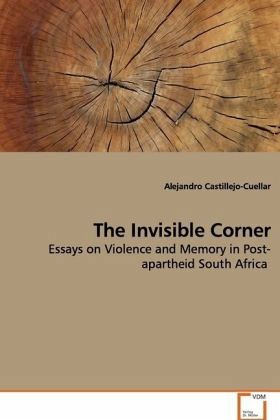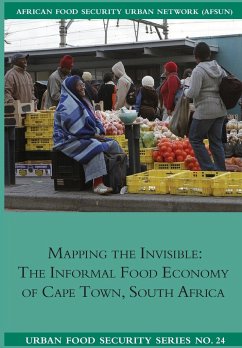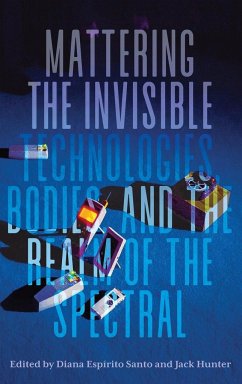
The Invisible Corner
Essays on Violence and Memory in Post-apartheid South Africa
Versandkostenfrei!
Versandfertig in 6-10 Tagen
52,99 €
inkl. MwSt.

PAYBACK Punkte
26 °P sammeln!
The Invisible Corner offers a nuanced and profoundly insightful understanding of the complicated afterlife of apartheid state violence for its survivors in the current times. It examines how the assassination of seven young activists in Gugulethu, Cape Town in 1986 has been made into an event , rendered through multiple regimes of discourse and performativity and subject to the institutional framings of truth and reconciliation . The author disaggregates the event, as it is publicly represented and memorialised, from the ways that the killing continues to impact on the everyday life of their f...
The Invisible Corner offers a nuanced and profoundly
insightful understanding of the complicated afterlife
of apartheid state violence for its survivors in the
current times. It examines how the assassination of
seven young activists in Gugulethu, Cape Town in 1986
has been made into an event , rendered through
multiple regimes of discourse and performativity and
subject to the institutional framings
of truth and reconciliation . The author
disaggregates the event, as it is publicly
represented and memorialised, from the ways that the
killing continues to impact on the everyday life of
their families and political community. In this way,
he probes the limits of the sayable that
institutional forms of memorialisation impose on
survivors of state violence. Tracing the
fragile cracks of recent history in which hope,
despair, silence and the tenacious pursuit of dignity
in contemporary South Africa remain entangled in the
structural constraints of a negotiated regime change,
this book offers an unparalleled insight into the
ongoing challenges for justice, social repair and
historical accountability. Heidi Grunebaum,
University of Western Cape, South Africa.
insightful understanding of the complicated afterlife
of apartheid state violence for its survivors in the
current times. It examines how the assassination of
seven young activists in Gugulethu, Cape Town in 1986
has been made into an event , rendered through
multiple regimes of discourse and performativity and
subject to the institutional framings
of truth and reconciliation . The author
disaggregates the event, as it is publicly
represented and memorialised, from the ways that the
killing continues to impact on the everyday life of
their families and political community. In this way,
he probes the limits of the sayable that
institutional forms of memorialisation impose on
survivors of state violence. Tracing the
fragile cracks of recent history in which hope,
despair, silence and the tenacious pursuit of dignity
in contemporary South Africa remain entangled in the
structural constraints of a negotiated regime change,
this book offers an unparalleled insight into the
ongoing challenges for justice, social repair and
historical accountability. Heidi Grunebaum,
University of Western Cape, South Africa.












